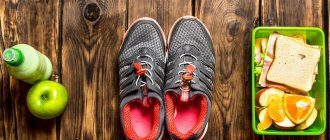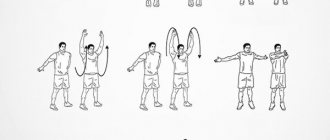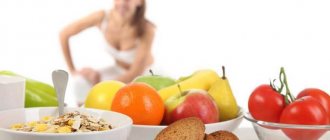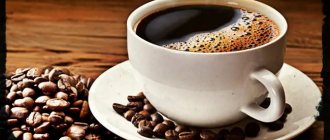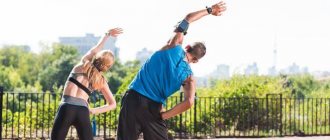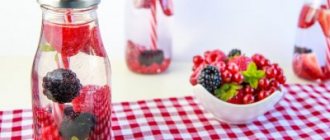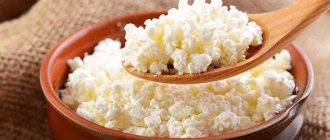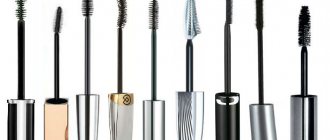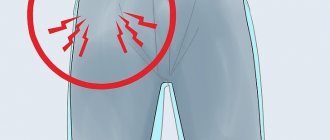Why do you need breakfast?
The quantity and composition of food must be chosen correctly: an overloaded stomach will not allow you to perform exercises in full, and nausea and vomiting may occur.
After a night's sleep, the level of glucose in the blood decreases, which serves as a source of nutrition for the brain and muscles. The reserves of glycogen, a complex carbohydrate that acts as a kind of reserve storage for glucose, are also depleted. The main amount of glycogen is deposited in the liver and muscles.
During physical activity, when there is a lack of glucose, the brain sends a “distress” signal, and glycogen begins to break down into glucose molecules to provide the body with energy.
If you train on an empty stomach, then with a lack of glycogen, muscle fibers suffer. Fatigue and malaise appear, endurance decreases. Systematic repetition of this situation can lead to exhaustion of the body and even provoke diseases.
Eating breakfast 1-2 hours before training will help restore the necessary supply of nutrients.
Rule 3
You shouldn't eat carbohydrates after a workout.
If your goal is to lose weight by getting rid of fat, give your body the opportunity to work as hard as possible after your workout.
Why?
15–20 minutes after the start of exercise, glycogen reserves * in the liver are depleted, and the body begins to use subcutaneous fat, breaking it down and releasing energy for further training. After about 30–40 minutes, the body finally switches to burning fat. But even after training, the process of subcutaneous fat breakdown continues for another 2–3 hours.
If you eat an apple, banana or drink juice immediately after training, your body will happily switch to easily accessible carbohydrates, and the fat burning process will come to naught.
*Glycogen is stored carbohydrates that are used as easily accessible fuel.
Features of breakfast before training for weight loss
When determining the amount of food and the time of its intake, focus on the well-being and individual characteristics of your body.
The main goal of weight loss exercises is not to pump up muscles, but to eliminate excess fat accumulation. During training, you must have sufficient glycogen fuel. Therefore, the morning menu must include foods containing carbohydrates.
You should not eat food with a high concentration of simple (fast) carbohydrates - sugar, sweets, confectionery. Such food contributes to a sharp increase in blood glucose, but by the beginning of the workout it decreases just as quickly, and you will not have the strength for long-term aerobic exercise.
Foods with a low glycemic index, which include complex carbohydrates, are much healthier. These include:
- grain bread, dietary cookies, cereal breads;
- light porridges – oatmeal, buckwheat;
- fruits, berries, vegetables;
- garden greens;
- nuts (walnuts, cashews, pine);
- legumes (beans, lentils, peas).
Complex carbohydrates are absorbed more slowly by the body and provide a gradual release of glucose into the blood. Preference should be given to products with a glycemic index of less than 60.
Don't forget about proteins in your morning menu. In combination with carbohydrates, they are perfectly absorbed and help reduce the overall glycemic index. Without the amino acids supplied by protein foods, muscles weaken and fat deposits quickly return.
You can eat low-fat cottage cheese, lean meat, poultry, and boiled fish. Omelette and fermented milk products are healthy. The optimal ratio of carbohydrates and proteins for successful aerobic training is 60% carbohydrates and 40% protein. The amount of fat in the morning diet should be reduced to a minimum.
An approximate menu for the week, taking into account BZHU (proteins, fats, carbohydrates) and caloric content of portions, is presented in the table.
| Day of the week | Menu | Proteins, g | Fats, g | Carbohydrates, g | Calorie content |
| Monday | Natural yogurt – 1 glass, blueberries – 100 g, banana – 1 pc. | 14 | 1 | 28 | 173 |
| Tuesday | Whole grain bread – 1 piece, chicken breast – 70 g, tomato – 1 piece, greens. | 15 | 7 | 25 | 220 |
| Wednesday | Chilled coffee – 150 ml, protein shake – 1 dosage spoon. | 26 | 2 | 7 | 150 |
| Thursday | Low-fat cottage cheese with berries - 100 g, banana - 1 pc. | 14 | 0,1 | 13 | 117 |
| Friday | Celery salad – 200 g + almond oil – 2 dessert spoons. | 7 | 10 | 10 | 206 |
| Saturday | Boiled turkey fillet – 100 g, cabbage salad – 150 g. Apple – 1 pc. | 25 | 2 | 15 | 185 |
| Sunday | Omelette of 2 eggs with vegetables, grapefruit. | 20 | 12 | 14 | 315 |
The serving size may be normal for you if you can have breakfast 2 hours before training. During this time, the food will be digested, the body will be saturated with the necessary nutrients, and the workout will be easy.
When there is not enough time, you can eat a small grain bread and drink a glass of kefir 1-1.5 hours before the start of classes. Before training in the early morning, 35-40 minutes before it, it is permissible to have a snack with an apple or banana, a small amount of low-fat cottage cheese, and drink a glass of tea.
Knowing what to eat before training is extremely important.
By providing your body with essential nutrients before exercise, you will gain the energy and strength you need to perform effectively in your sport. Each macronutrient plays a specific role. However, the ratio in which you should consume them depends on your individual body (weight, age) and the type of exercise you do (1).
Below is a brief overview of the role of each macronutrient.
Carbohydrates
Your muscles use glucose from carbohydrates for energy. Glycogen is a polysaccharide that is glucose residues stored in liver and muscle cells as a glucose reserve. For short, high-intensity exercise, your glycogen stores are your muscles' primary source of energy (2).
But for longer exercise, the degree to which carbohydrates are used depends on several factors. These include intensity, type of workout, and your diet (2).
Glycogen stores in your muscles are limited. As these reserves are depleted, your performance and exercise intensity decrease (3, 4, 5).
Research has consistently shown that carbohydrates can increase glycogen storage and utilization while increasing carbohydrate oxidation during exercise (5, 6, 7).
Carbohydrate loading, which involves eating a high-carbohydrate diet for 1-7 days, is a known method for maximizing glycogen stores (6, 7).
Protein
Many studies have documented the potential of pre-exercise protein intake to improve athletic performance. Eating a protein meal (alone or with carbohydrates) before exercise has been shown to increase muscle protein synthesis (8, 9, 10).
One study found a positive anabolic response after participants consumed 20 grams of whey protein before exercise (8).
Other benefits of consuming protein before a workout include:
- Improved anabolic response or muscle growth (10, 11);
- Improved muscle recovery (11);
- Increased strength and lean muscle mass (12);
- Increased muscle efficiency (10, 11, 12).
Fats
While glycogen is used during short, high-intensity exercise, fat is the source of energy during longer, moderate-to-low-intensity exercise (13).
Some studies have examined the effects of fat intake on athletic performance. However, it's worth noting that these studies looked at high-fat diets over a long period, rather than consuming a fatty meal before exercise (14, 15).
For example, one study found that a four-week diet consisting of 40% fat increased endurance in healthy trained runners (14).
Summary:
Carbohydrates help maximize glycogen stores for high-intensity exercise, while fat helps fuel the body for longer during lower-intensity workouts. Meanwhile, protein improves muscle protein synthesis and promotes recovery.
What to eat in the morning before training to gain muscle mass
You need to have breakfast 2-3 hours before training. If for some reason you do not have time to eat a full meal, use one of the sports nutrition complexes, for example, BCCA or whey protein. The necessary energy will be obtained without the risk of gastric discomfort.
Strength exercises require a lot of energy. An increase in bodybuilder muscle volume occurs due to increased consumption of protein foods, since protein amino acids are the building material for muscle fibers. No less important are carbohydrates - the main supplier of energy during high physical activity. Fats also cannot be excluded from the diet, otherwise lipid metabolism will be disrupted, which will not have the best effect on health.
The body best absorbs animal proteins contained in meat, fish, dairy dishes, and eggs. When choosing meat, priority is given to lean beef, chicken or turkey breast. Plant proteins are less useful for pumping up muscles, but fats, on the contrary, need vegetable fats - olive or sunflower oil, nuts.
It is recommended to consume carbohydrates slowly. Their suppliers are fruits and vegetables. Fast carbohydrates (sugar and other sweets) are indicated only in case of a sharp drop in blood glucose during prolonged strength training. A bodybuilder's diet should include 60% proteins and 40% carbohydrates. The amount of fat before morning exercise is limited.
The table shows examples of the morning menu before the upcoming workout.
| Day of the week | Menu | Proteins, g | Fats, g | Carbohydrates, g | Calorie content |
| Monday | Whole grain bread - 2 slices, 100 g boiled turkey, 1 slice of soft cheese, 1/2 tomato. | 40 | 15 | 45 | 470 |
| Tuesday | Whole grain oatmeal – 150-200 g, 1 scoop of protein powder. | 33 | 7 | 57 | 420 |
| Wednesday | Whole grain bread - 2 pcs., boiled chicken breast - 100 g, avocado - 1/2 pc., cucumber - 1/2 pc., soft cheese - slice. | 35 | 12 | 40 | 450 |
| Thursday | Omelette of 2 eggs + 2 whites with vegetables, grapefruit. | 26 | 18 | 13 | 330 |
| Friday | Potatoes with minced turkey (for 1 medium-sized potato – 150 g minced meat), bell pepper – ½ pc. | 35 | 13 | 37 | 405 |
| Saturday | Baked chicken fillet with broccoli -150 g, apple - 1 pc. | 59 | 8 | 36 | 380 |
| Sunday | Mix of unsalted nuts with olive oil, dried fruits and cinnamon – 250-300 g | 20 | 60 | 23 | 546 |
Menu ideas
With all that said, your diet should still include all three macronutrients—protein, fat, and carbohydrates. To obtain energy, muscles mainly use carbohydrates, so this group of foods cannot be excluded from the diet. We offer you several breakfast ideas below, from less calorie to more nutritious. The choice depends on the type of training you plan and the time you have at your disposal.
A complete meal
(two or more hours before training):
- Whole grain toast with peanut butter and banana slices. A little honey;
- Omelette of two eggs with vegetables. Garnish: potatoes. Orange slices;
- Overnight oatmeal - overnight oats topped with yogurt or milk, topped with chia seeds and frozen berries (plus peanut or almond butter).
Light breakfast (an hour or two before training):
- Whole grain tortilla with scrambled eggs and grated cheese;
- Yogurt with granola and diced apple, sprinkled with cinnamon;
- English muffin with jam.
Snack before workout
(one hour or less before training):
- A bag of applesauce (yes, for kids - they're easy to take with you!);
- Banana;
- Half a protein/energy bar;
- Pre-workout mixture mixed with water and fruit juice, taken in equal proportions.
Additional Notes
Start drinking water as soon as you wake up. Based on research, scientists recommend drinking about 300 ml of water within half an hour after exercise.1 Drinking too much water immediately before exercise can cause some discomfort, while too little can lead to cramps.
Is it possible to drink coffee or tea before training? This question is more a matter of personal preference. Some people don't need caffeine during exercise, others may need it to get them started. If you take caffeine before training, pay attention to the amount - don't overdo it.
Conclusion
One of the most important factors influencing your morning workout routine is breakfast. We are all different, so it may take some trial and error before you choose the right menu for you. Take some time to plan the type, intensity, and timing of your workout. Knowing all this in advance, you can establish an optimal daily routine for yourself.
Translation: Farida Seidova
Articles on our website are presented for educational and informational purposes only. We do not recommend using article materials as medical advice. If you decide to take dietary supplements or make fundamental changes to your diet, first consult with a specialist.
How to balance your diet while building muscle mass
Natural products are the best option for a balanced diet for a bodybuilder. Choose the serving size for breakfast according to your individual needs. Consider your well-being and body characteristics.
For a person prone to obesity, the optimal ratio of dietary fat as a percentage of the daily amount of food will be: proteins - 55-70%, carbohydrates - 20-30%, fats - 3-5%. Thin people who have difficulty gaining weight can use a different proportion: proteins - 40-50%, carbohydrates - 40-50%, fats - 5-10%.
When purchasing food products, carefully study the data on the percentage of dietary fat on the packaging.
Pre-workout food: to eat or not to eat?!
There is an opinion that aerobic exercise on an empty stomach helps burn fat more effectively than an hour of cardio exercise after eating. And it’s true: fat oxidation occurs faster in this case. But where does the strength and energy to perform the exercises come from in this case? Energy begins to be consumed from muscle tissue, and not just from subcutaneous fat. So if you're hoping to lose weight by skipping pre-workout food, remember that you'll likely lose muscle tissue. So, training on an empty stomach is a myth that can not only reduce the effect of exercise, but also harm your health.
Another important aspect of pre-workout nutrition is sugar intake. Anyone who has worked out while hungry knows from himself that after half an hour, slight dizziness, fatigue and lethargy begin. And this fatigue is not at all due to the fact that you are working out effectively, but from an elementary lack of blood sugar, which enters the body with food. Therefore, to the question “is it necessary to eat before training” there is only one answer: it is simply necessary to obtain energy, grow muscle tissue and protect muscles.
What to eat before training: making a menu
So, eating before training is the basis for maintaining muscle mass. In addition, it is a source of energy necessary for active movement, as well as protecting the body from possible dehydration. And so, standing in front of the refrigerator, we think: what foods can we eat before training?
In order to formulate a menu and have clear ideas about nutrition before training so that it is effective, you need to know what effect the main components of the foods you eat have on the body.
Pre-workout food: what proteins, fats and carbohydrates do
The main components of food are proteins, fats and carbohydrates.
- Protein is involved in building muscle tissue and protects it from micro-tears, stretching and bruises during training.
- Carbohydrates provide up to 70% of the energy that is then spent during training. They increase blood glucose levels, which increases strength and endurance, and also reduces stress hormones (cortisol). Carbohydrate-containing foods have a so-called glycemic index, which shows the rate at which the product is broken down in the body. Before training, a person needs foods with a low glycemic index. They contain more fiber, essential glucose of natural origin and break down slowly, releasing energy to the body for a long time and evenly. These foods include oatmeal, vegetables, and sweet potatoes.
- The amount of fat should be kept to a minimum as it is difficult to digest. In addition, it is better to choose vegetable fats so as not to interfere with the flow of nutrients into the blood.
The proportions of the substances are approximately as follows: carbohydrates 55-60%, proteins - 25-30%, fats - 10-15%, depending on the type of workout.
What drinks are better
Fitness enthusiasts often drink coffee with breakfast. Sometimes this is justified, as it stimulates the body to active functioning. You should not add cream and large amounts of sugar to coffee - the caloric content of the diet increases, and sugar (a fast carbohydrate) can lead to a sharp drop in glucose during training and a loss of strength.
Important! Don't forget about clean water. Immediately after sleep, drink 1-2 glasses, and during exercise, drink mineral or slightly salted water. This way you will prevent dehydration of the body and loss of mineral salts.
For those who like freshly squeezed juices, it is better to limit their consumption before training. Juices have almost no fiber, they stimulate appetite and cause fatigue during high physical activity. Juices should be supplemented with plant fiber and protein sources.
At breakfast you can drink a glass of kefir or milk, green or herbal tea. Store-bought juices and sweet carbonated drinks are completely excluded.
Sports nutrition
The sports nutrition market offers a huge range of products. But you need to approach your choice with extreme caution: if you have heart or vascular problems, endocrine disorders, gastrointestinal diseases, kidney dysfunction or high blood pressure, consult your doctor before using supplements.
The most popular sports nutrition products that can be used as a breakfast supplement:
- Thermogenics. Actively burn subcutaneous fat. They should be taken in courses of no more than 30 days, with 2-week breaks.
- L-carnitine. Promotes the loss of fat deposits, the growth of muscle mass, increases vitality and stress resistance.
- B.C.C.A. The supplement is a mixture of amino acids (valine, leucine, isoleucine), which play a leading role in the construction of muscle tissue. Suppresses catabolic (destructive) processes in muscles.
- Slow protein. Provides a continuous supply of amino acids, which reduces the likelihood of catabolic manifestations in the muscles during periods of high stress.
When choosing a supplement that is suitable for you, focus on products from well-known brands offered by specialized stores. This way you can avoid negative consequences for the body due to taking low-quality sports nutrition or counterfeits.
You should strictly follow the dosage and rules for using food additives specified in the instructions. Don't risk your health!
What should breakfast be like?
Before deciding what to eat before your morning workout, there are three main things to consider:
- Type of food.
- Serving size.
- Saturation time.
A fruit smoothie or oatmeal gives your body a quick burst of energy, but it may not be enough to last you through your entire workout. To ensure longer-lasting energy, you need to combine simple carbohydrates with a small amount of fat and protein.
Serving size largely depends on the duration of your workout. The more intense it is, the richer the meal should be. But at the same time, it is important to remember that the larger and more caloric the food, the longer it will take to digest. Therefore, before training, not half an hour should pass, but more than 2 hours. Try to eat less if you don't have that time left.
If you don’t have time to cook in the morning or don’t want to bother with cooking, then feel free to eat a banana or a slice of toast. Gradually increase the quantity and quality of food you eat until you get used to eating a full breakfast.
TOP 5 pre-workout breakfast foods
1. Oatmeal . It has a low glycemic index, perfectly saturates the body with complex carbohydrates, and does not contain fat. Whole grain oatmeal is especially healthy.
2. Chicken eggs . A familiar product for a morning meal. Contains easily digestible natural protein. A classic omelet with garden herbs is an excellent breakfast option for a bodybuilder.
3. Turkey meat . It is low in cholesterol and fat. A good supplier of protein for muscle building.
4. Fruits and nuts . Particularly noteworthy are bananas, apples, pears, pineapple, and citrus fruits. Rich in fiber, complex carbohydrates, microelements. Nuts are a source of unsaturated fats, folic and omega-6 acids.
5. Cottage cheese and natural yogurt . Indispensable for replenishing protein and calcium reserves. In combination with fruits and berries they are a complete breakfast.
Should I have breakfast?
Eating breakfast before a morning workout is very important for people who exercise. Metabolic processes – synthesis and breakdown of substances – largely depend on its quality. A proper breakfast is:
- endurance and strength in training;
- replenishing protein supplies, since in sports the most important thing is to maintain muscles;
- acceleration of metabolism, which is important for a slim body.
The distribution of food throughout the day directly depends on rational eating in the morning. For athletes, the nutritional value of the morning meal should be a quarter or even a third of the norm for the whole day. So the question is not whether you should eat, but what and how to eat correctly in the morning.
Be sure to check out: Simple recommendations from famous trainers on what to eat before a workout to lose weight What to eat before a workout: recommendations from experts What is the best thing to eat after strength training and cardio to burn fat What and how long can you eat after a workout
